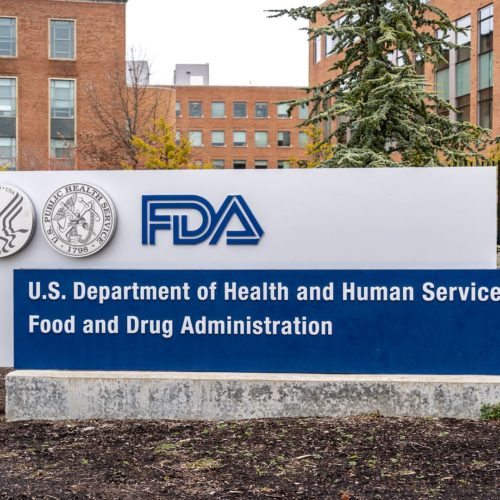The first patient has been dosed in Celyad Oncology’s Phase 1 clinical trial evaluating CYAD-211, an investigational donor-derived CAR T-cell therapy for treating relapsed or refractory multiple myeloma. The IMMUNICY-1 trial (NCT04613557) intends to recruit 12 patients who received two or more prior lines of treatment, including an immunomodulatory agent and a proteasome inhibitor. Enrollment…
Author: Chris
FDA Agrees to Priority Review of Opdivo for Gastric, Esophageal Cancers
The U.S. Food and Drug Administration (FDA) has accepted for review — under priority status — two applications requesting the approval of Opdivo (nivolumab) for treating several types of gastric and esophageal cancers. Opdivo is an immune checkpoint inhibitor marketed by Bristol Myers Squibb that has been approved, both alone and in combination with other…
Daily Coffee Drinking Lowers Prostate Cancer Risk, Study Suggests
Drinking more coffee may significantly reduce a person’s risk of prostate cancer, with a nearly 1% lesser likelihood seen with each additional daily cup of coffee consumed, an analysis of published studies suggests. “Coffee consumption and risk of prostate cancer: a systematic review and meta-analysis” was published in BMJ Open. Coffee contains a number of biologically…
Zejula Now Available in UK as Maintenance Therapy for Advanced Ovarian Cancer
The National Institute of Health and Care Excellence (NICE) has recommended the use of Zejula (niraparib) as a maintenance therapy for people with advanced ovarian, fallopian tube, or primary peritoneal cancer. The medication will be available through the Cancer Drugs Fund (CDF), a funding program that seeks to increase access to promising cancer medicines in…
Imagio Imaging System for Breast Cancer Diagnosis Approved by FDA
Imagio, Seno Medical Instruments’ non-invasive and radiation-free breast imaging technology, has been approved for commercialization by the Center for Devices and Radiological Health, part of the U.S. Food and Drug Administration (FDA). The technology — known fully as the Imagio Breast Imaging System — was designed to help physicians better distinguish malignant, or cancerous breast tumors…
UV1 Triple Combo Maintenance Therapy Will Be Tested in Phase 2 Trial
Ultimovacs will test its experimental cancer vaccine, UV1, as part of a triple-combination therapy for women with relapsed ovarian cancer who have no mutations in their BRCA DNA repair genes. The Phase 2 DOVACC collaboration study will investigate UV1, in combination with AstraZeneca’s immune checkpoint inhibitor Imfinzi (durvalumab) and PARP inhibitor Lynparza (olaparib), as a…
Early Data Show TNB-383B to be Safe, Effective for Heavily Treated Myeloma
Teneobio‘s bispecific antibody TNB-383B was found to be well-tolerated and induced a high response rate among people with heavily treated multiple myeloma in an ongoing Phase 1 trial. Preliminary data from the trial (NCT03933735), which continues to recruit participants in the U.S., showed an 80% overall response rate at doses of 40 mg or more, with…
Tecentriq-Avastin Combo Leads to ‘Longest Survival’ in Liver Cancer
First-line therapy with a combination of Tecentriq (atezolizumab) and Avastin (bevacizumab) significantly prolongs the survival of people with inoperable hepatocellular carcinoma (HCC) — the most common form of liver cancer — according to updated data from an ongoing Phase 3 trial. The latest findings from the study, called IMbrave150 (NCT03434379), showed that the combination therapy…
New Technique May Enable Early Diagnosis of Alzheimer’s
A newly developed technique could make it easier to measure very small concentrations of molecules, which may have implications in early diagnostic testing for Alzheimer’s and other diseases. The technique was described in Research, in the study “Single-Atom Nanozymes Linked Immunosorbent Assay for Sensitive Detection of Aβ 1-40: A Biomarker of Alzheimer’s Disease.” One of the…
Active Surveillance Safe for Black Men With Low-risk Diagnosis, Study Finds
Offering Black men active surveillance to manage low-risk prostate cancer is safe and does not increase the risk of disease spreading or death more than it does for white men, a study has found. However, Black men on active surveillance are more likely to progress and require definitive treatment, researchers said, and further investigation is needed…











